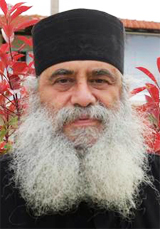By Eric Reguly
The Globe and Mail

The first mobilizations against the expansion of the old mines in the Halkidiki peninsula, the birthplace of Aristotle in northeastern Greece, began in late 2011. That’s when Vancouver’s Eldorado Gold Corp. grabbed most of the local mining industry and unveiled plans for a €1-billion ($1.32-billion) development that would turn the recession-stricken region into a gold-producing powerhouse.
But development skeptics asked: At what cost to the environment, tourism and agriculture? They concluded that the massive project, smack in the middle of a part of Greece that could pass for Tuscany, would do more harm than good and took to the streets. “To live, you need, air, soil and water,” explains Nina Karina, 50, an artist who opposes Eldorado. “This investment takes away all three from us.”
At first, the protests were fairly low key, although there were times when the trigger-happy Greek police flung tear gas canisters at hothead protesters armed with flares, rocks and gasoline bombs. By the autumn of 2012, something akin to civil war had broken out. The turning point came on Oct. 21 when about 2,500 protesters fought a pitched battle with more than 200 police along the forest road leading to Eldorado’s Skouries gold-and-copper deposit, the centrepiece of its Greek strategy.
